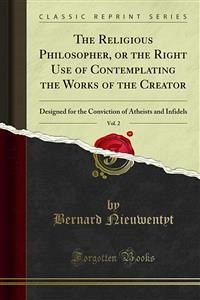Excerpt from Book:
By the Sixth Sense I mean the Mystic Sense, or that inner perceptive faculty which distinguishes man from the highest below him and allies him to the highest above him. So distinctive among created objects is it of man that it might, not inaptly, be characterized as the Human Sense. It is used for no one exclusive purpose; on the contrary it is only under its operation that man’s activities, one and all, become human. In its nature it differs essentially from the bodily senses though we are justified in thinking of it as a sense because its function is, like them, to perceive and to afford food for thought.
The five bodily senses originally, in the first stages of evolution, were, and, in their ultimate aspect are, one sense—the sense of touch. By means of it plant, mollusc and worm relate themselves to the universe of which they are a part. By degrees the single sense, in the evolutionary process, finds opportunity and occasion for specialization. Sight is extraordinarily sensitized touch by means of which form and color are perceived, and the distant object comes bowing to our feet; the stars, leaping across space, are converted into intimate friends, and earth’s farthest horizon lies at our door. Hearing is touch localized and specialized so as to be capable of perceiving the vibrations caused by the impact of one body upon another; its enlarged capacity classifies sound in such a way as to offer its mutations and subtleties for our use and pleasure as the weaver offers his threads to the loom. Smell is that specialization of touch, uniquely delicate, supposed by Maeterlinck to be still in its earlier stage of development in human kind, which responds to the stimulus of those otherwise intangible exhalations called odor. Lastly, taste is touch specialized so as to discern the inner properties of food stuff; taste is the testing sense. Mere touch determines the existence, specialized touch the character and niceties of matter of the physical universe.
As indicative of the unity of the animal senses and the coöperative sympathy between them, it is noteworthy that when one sense is impaired or destroyed, the others diligently endeavor to supply its absence, the entire body playing the part as far as possible of eye or ear or both, and each remaining sense growing extraordinarily acute so as to take on somewhat of the character of the most nearly affiliated or the neighbor sense. The blind man can almost see with ears and hands, the deaf can almost hear with eyes. The senses that are left strain, not without a measure of success, to convey to the brain impressions for which they are not congenitally adapted.
By the Sixth Sense I mean the Mystic Sense, or that inner perceptive faculty which distinguishes man from the highest below him and allies him to the highest above him. So distinctive among created objects is it of man that it might, not inaptly, be characterized as the Human Sense. It is used for no one exclusive purpose; on the contrary it is only under its operation that man’s activities, one and all, become human. In its nature it differs essentially from the bodily senses though we are justified in thinking of it as a sense because its function is, like them, to perceive and to afford food for thought.
The five bodily senses originally, in the first stages of evolution, were, and, in their ultimate aspect are, one sense—the sense of touch. By means of it plant, mollusc and worm relate themselves to the universe of which they are a part. By degrees the single sense, in the evolutionary process, finds opportunity and occasion for specialization. Sight is extraordinarily sensitized touch by means of which form and color are perceived, and the distant object comes bowing to our feet; the stars, leaping across space, are converted into intimate friends, and earth’s farthest horizon lies at our door. Hearing is touch localized and specialized so as to be capable of perceiving the vibrations caused by the impact of one body upon another; its enlarged capacity classifies sound in such a way as to offer its mutations and subtleties for our use and pleasure as the weaver offers his threads to the loom. Smell is that specialization of touch, uniquely delicate, supposed by Maeterlinck to be still in its earlier stage of development in human kind, which responds to the stimulus of those otherwise intangible exhalations called odor. Lastly, taste is touch specialized so as to discern the inner properties of food stuff; taste is the testing sense. Mere touch determines the existence, specialized touch the character and niceties of matter of the physical universe.
As indicative of the unity of the animal senses and the coöperative sympathy between them, it is noteworthy that when one sense is impaired or destroyed, the others diligently endeavor to supply its absence, the entire body playing the part as far as possible of eye or ear or both, and each remaining sense growing extraordinarily acute so as to take on somewhat of the character of the most nearly affiliated or the neighbor sense. The blind man can almost see with ears and hands, the deaf can almost hear with eyes. The senses that are left strain, not without a measure of success, to convey to the brain impressions for which they are not congenitally adapted.









